Related Research Articles
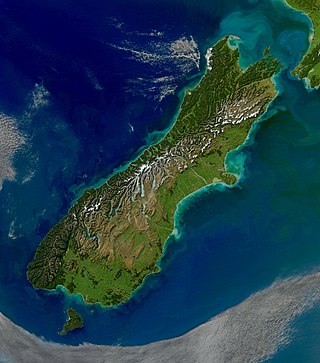
The South Island is the largest of the three major islands of New Zealand in surface area, the other being the smaller but more populous North Island and sparsely populated Stewart Island. It is bordered to the north by Cook Strait, to the west by the Tasman Sea, to the south by the Foveaux Strait and Southern Ocean, and to the east by the Pacific Ocean. The South Island covers 150,437 square kilometres (58,084 sq mi), making it the world's 12th-largest island, constituting 56% of New Zealand's land area. At low altitudes, it has an oceanic climate. The major centres are Christchurch, with a metropolitan population of 521,881, and the smaller Dunedin. The economy relies on agriculture, fishing, tourism, and general manufacturing and services.

The University of Otago is a public research collegiate university based in Dunedin, Otago, New Zealand. Founded in 1869, Otago is New Zealand's oldest university and one of the oldest universities in Oceania.
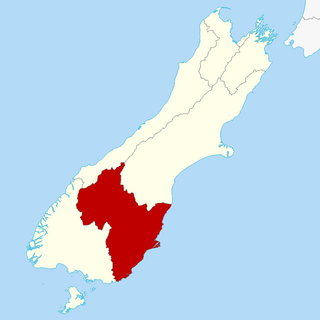
Otago is a region of New Zealand located in the southern half of the South Island administered by the Otago Regional Council. It has an area of approximately 32,000 square kilometres (12,000 sq mi), making it the country's second largest local government region. Its population was 254,600 in June 2023.

Dunedin is the second-largest city in the South Island of New Zealand, and the principal city of the Otago region. Its name comes from Dùn Èideann, the Scottish Gaelic name for Edinburgh, the capital of Scotland. The city has a rich Māori, Scottish, and Chinese heritage.

Otakou is a settlement within the boundaries of the city of Dunedin, New Zealand. It is located 25 kilometres from the city centre at the eastern end of Otago Peninsula, close to the entrance of Otago Harbour. Though a small fishing village, Otakou is important in the history of Otago for several reasons. The settlement is the modern centre and traditional home of the Ōtākou rūnanga (assembly) of Ngāi Tahu. In 1946 Otakou Fisheries was founded in the township; this was later to become a major part of the Otago fishing industry.

William Walter Cargill was the founder of the Otago settlement in New Zealand, after serving as an officer in the British Army. He was a member of parliament and Otago's first Superintendent.

Peter Wing Ho Chin, CNZM is a lawyer and was the 56th Mayor of Dunedin, New Zealand. He served two terms as Mayor from 2004 to 2010.

Otago Polytechnic is a public New Zealand tertiary education institute, centred in Dunedin with additional campuses in Cromwell and Auckland. Otago Polytechnic provides career-focused education and training, offering a range of New Zealand accredited postgraduate qualifications, degrees, diplomas and certificates at levels 2–10. In November 2022, it became a business unit of the national mega polytechnic Te Pūkenga, ending its existence as an independent entity.
The following lists events that happened during 1962 in New Zealand.

The villages and then city that lay at the head of Otago Harbor never existed in isolation, but have always been a staging ground between inland Otago and the wider world. While Dunedin's current official city limits extend north to Waikouaiti, inland to Middlemarch and south to the Taieri River mouth, this articles focus is the history of the Dunedin urban area, only mentioning Mosgiel, the Otago Peninsula, Port Chalmers and inland Otago for context.

Dunedin Hospital is the main public hospital in Dunedin, New Zealand. It serves as the major base hospital for the Otago and Southland regions with a potential catchment radius of roughly 300 kilometres, and a population of around 120,000.
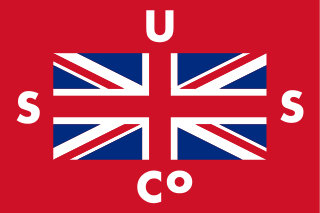
Union Steam Ship Company of New Zealand Limited was once the biggest shipping line in the southern hemisphere and New Zealand's largest private-sector employer. It was incorporated by James Mills in Dunedin in 1875 with the backing of a Scottish shipbuilder, Peter Denny. Bought by shipping giant P&O around the time of World War I it was sold in 1972 to an Australasian consortium and closed at the end of the twentieth century.
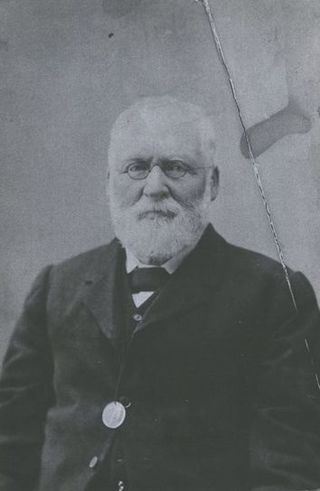
Edward Bowes Cargill was a 19th-century businessman and Member of Parliament in Dunedin, Otago, New Zealand. He was the Mayor of Dunedin from 1897 to 1898.

Robert Gillies was a 19th-century Member of Parliament in Otago, New Zealand. He was born in Rothesay on the Isle of Bute, Scotland.
Colin Bouwer was a South African-born New Zealand former doctor who rose to become Head of Psychiatry at the University of Otago in Dunedin, New Zealand. He spent 16 years in prison for the murder of his third wife Annette. His crime was dramatised in the TV movie Bloodlines, with Bouwer being portrayed by Mark Mitchinson. His son from a previous marriage was also convicted of an unrelated murder in 2003. His first wife was also convicted of helping their son cover up his crime.
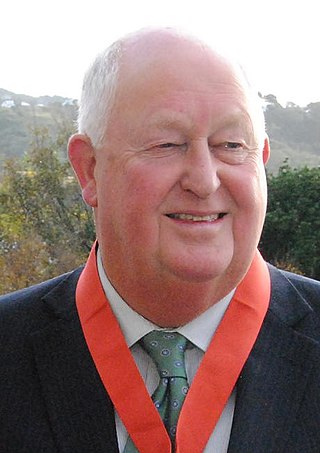
Sir Julian Stanley Smith is a New Zealand businessman and one-time publisher of the Otago Daily Times (ODT) and director of Allied Press. Smith is the fifth generation of his family to run the paper.

Catlins Conservation Park is a protected area in the Otago region of New Zealand, covering 53,041 hectares in The Catlins, within the Clutha District.

Rachel Jane Brooking is a New Zealand Labour Party politician and Member of Parliament who served as the Minister for Oceans and Fisheries and Minister for Food Safety in the Sixth Labour Government. She first became an MP at the 2020 New Zealand general election. She is a lawyer by profession.
References
- ↑ Hudson, Daisy (1 February 2020). "Long read: The Dunedin bombing that shocked a nation". Otago Daily Times Online News. Allied Press Limited. Retrieved 2 January 2023.
- ↑ "Dunedin Solicitor Murdered". Otago Daily Times . Allied Press Limited. 6 February 1962. p. 1.
- ↑ "Dunedin Lawyer Killed". Press. Vol. CI, no. 29740. Christchurch, New Zealand. New Zealand Press Association. 6 February 1962. p. 12. Retrieved 2 January 2023– via paperspast.natlib.govt.nz.
- ↑ Jones, Ronald. "The Ward Parcel-bomb Murder, 1962". In McLintock, Alexander Hare (ed.). An Encyclopaedia of New Zealand (1966 ed.). New Zealand Ministry for Culture and Heritage Te Manatu Taonga. Retrieved 2 January 2023– via Te Ara (teara.govt.nz).